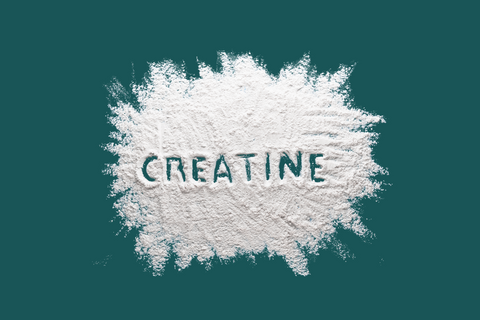For Aliment’s community of health-conscious customers, we know that understanding the latest research is key to making informed choices. Let’s take a dive into a pivotal 2025 study by Candow and Moriarty, published in Current Osteoporosis Reports, which examines whether creatine monohydrate lives up to its growing reputation as a wellness ally, unpack their findings and explore what they mean for you.
The Study at a Glance
Title: Effects of Creatine Monohydrate Supplementation on Muscle, Bone and Brain—Hope or Hype for Older Adults?
Scope: A comprehensive review of over 20 clinical trials focused on adults aged 55+ (with an emphasis on postmenopausal women).
Goal: To determine if creatine supplementation improves muscle, bone, and brain health in aging populations.
Key Insights for Everyday Wellness
1. Muscle Health: Strength for Life’s Moments
- Proven Benefits: Daily creatine (3–5 g) paired with regular resistance training increased leg muscle thickness by 8–12% and improved seated chair-stand performance (a key indicator of functional mobility).
- Why It Matters: Stronger muscles mean easier lifting, playing with kids or grandkids, and maintaining independence.
2. Bone Health: Subtle but Significant
- Mixed Results: While creatine alone didn’t boost bone density, 12-month interventions with weight-bearing exercise reduced bone loss in postmenopausal women by 1–2% annually.
- The Science: Creatine may stimulate bone-forming cells (osteoblasts) and curb bone breakdown, offering long-term protection against osteoporosis - although it looks like exercise is the main stimulus we should be aiming for.
3. Brain Health: Sharpening the Mind
- Emerging Evidence: Studies noted a 5–10% improvement in memory and processing speed in older adults taking creatine, likely due to enhanced brain energy metabolism.
- Family Impact: Better cognitive function supports multitasking, learning new skills, and staying engaged with loved ones.
Hope vs. Hype: What the Study Concludes
|
Area |
Hope (Supported by Evidence) |
Hype (Not Fully Backed) |
|
Muscle |
Enhances strength and function with exercise |
Not a “magic pill” without activity |
|
Bone |
May slow bone loss long-term |
No quick fixes for bone density |
|
Brain |
Potential cognitive benefits |
More research needed for dementia links |
Safety and Simplicity
- No Serious Side Effects: The study confirms creatine monohydrate is safe for long-term use at recommended doses (3–5 g/day).
- Easy to Use: Skip the loading phase—consistent daily intake is just as effective and gentler on the stomach.
Practical Takeaways for Families
- Pair with Movement: Combine creatine with walking, yoga, or light weights for maximum benefits.
- Quality First: Opt for pure creatine monohydrate (like Aliment’s Creatine Monohydrate) without additives.
- Family-Friendly: Safe for adults of all ages, making it a versatile addition to shared wellness routines.
The Bottom Line
Candow and Moriarty’s extensive research suggests creatine is far from hype—it’s a science-supported tool for aging well. While not a cure-all, it offers tangible benefits for staying strong, resilient, and mentally sharp. This underscores the value of combining smart supplementation with an active, family-centered lifestyle.
Reference: Candow, D.G., Moriarty, T. (2025). Current Osteoporosis Reports. https://doi.org/10.1007/s11914-024-00895-x
Always consult your healthcare provider before starting new supplements, particularly if pregnant, nursing, or managing a medical condition.



